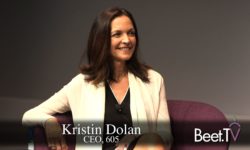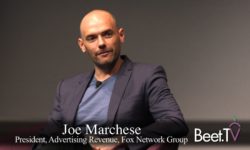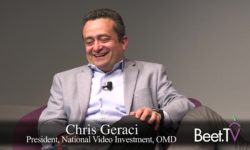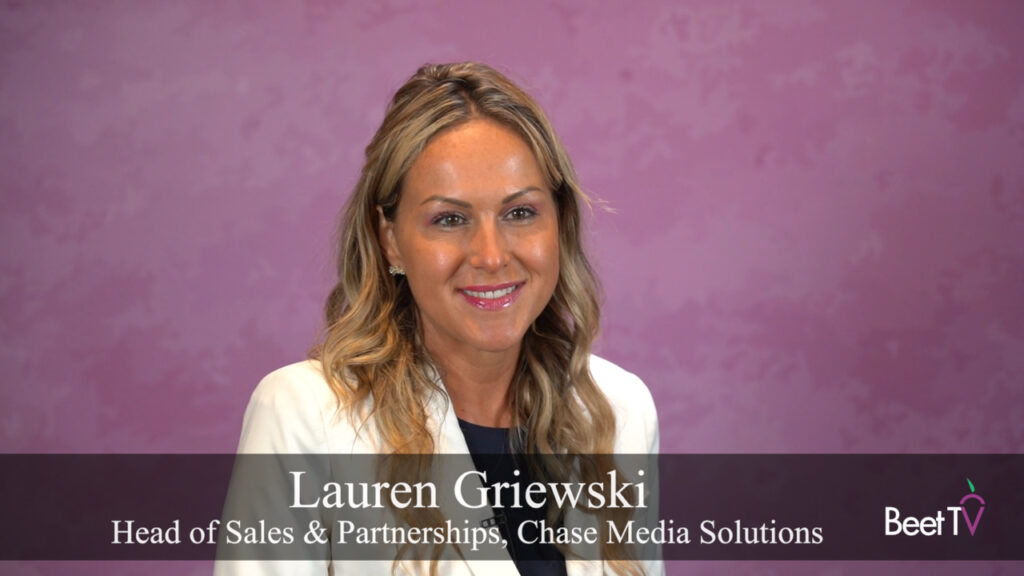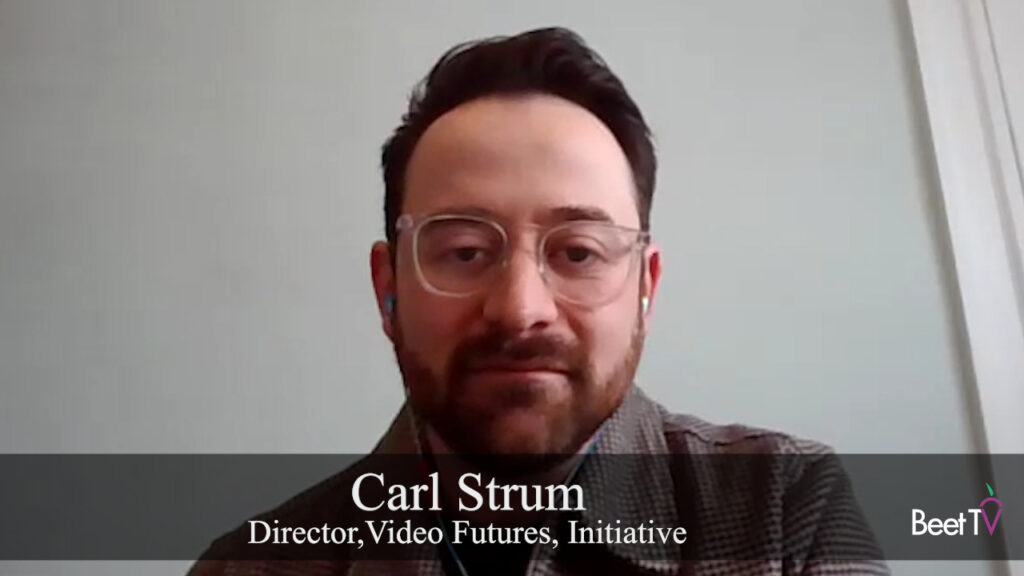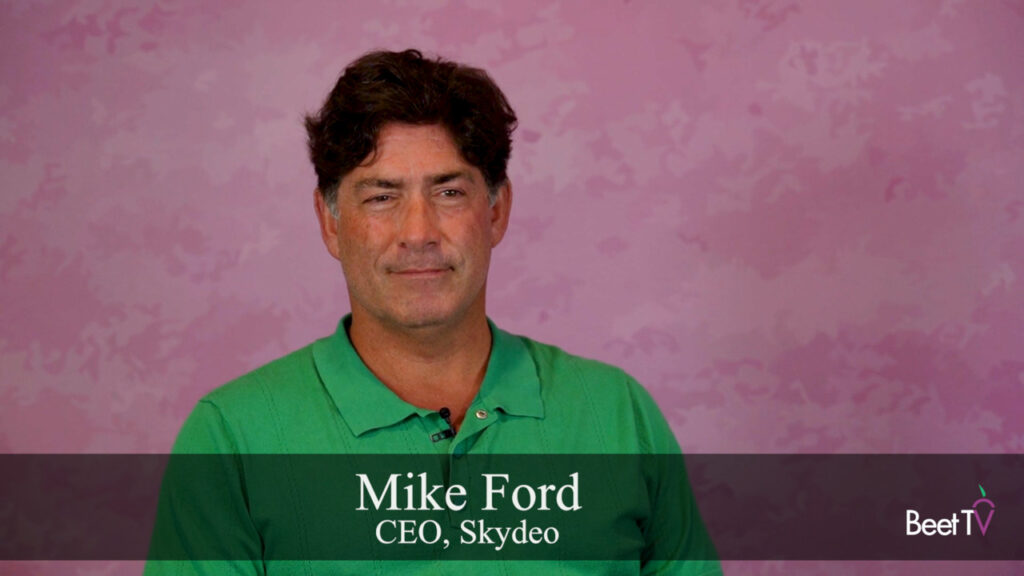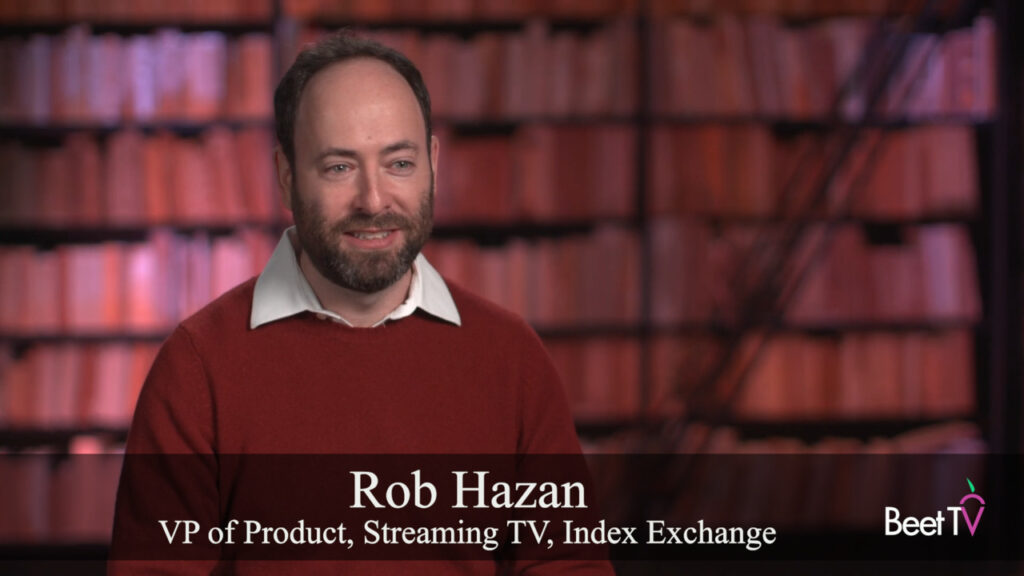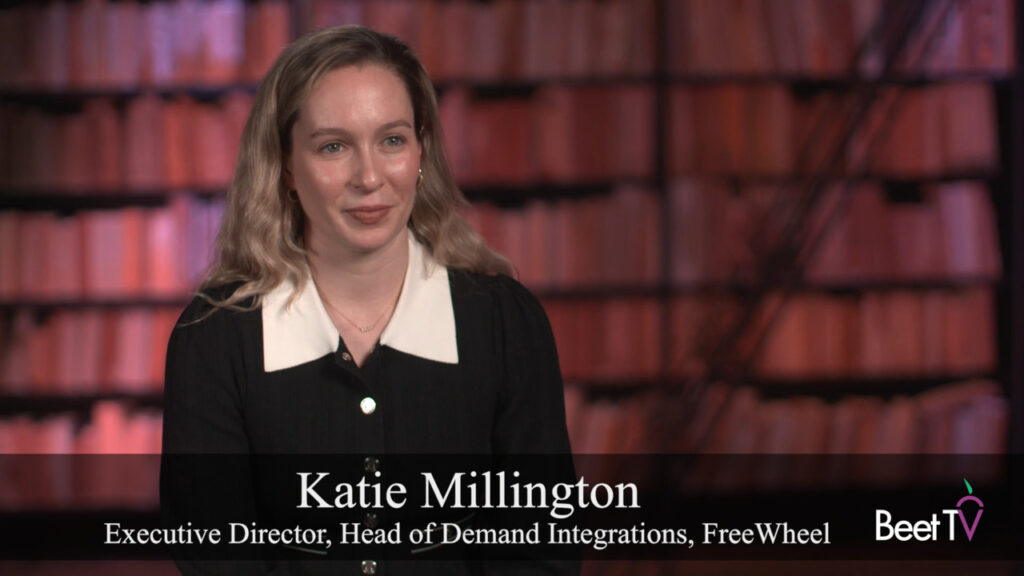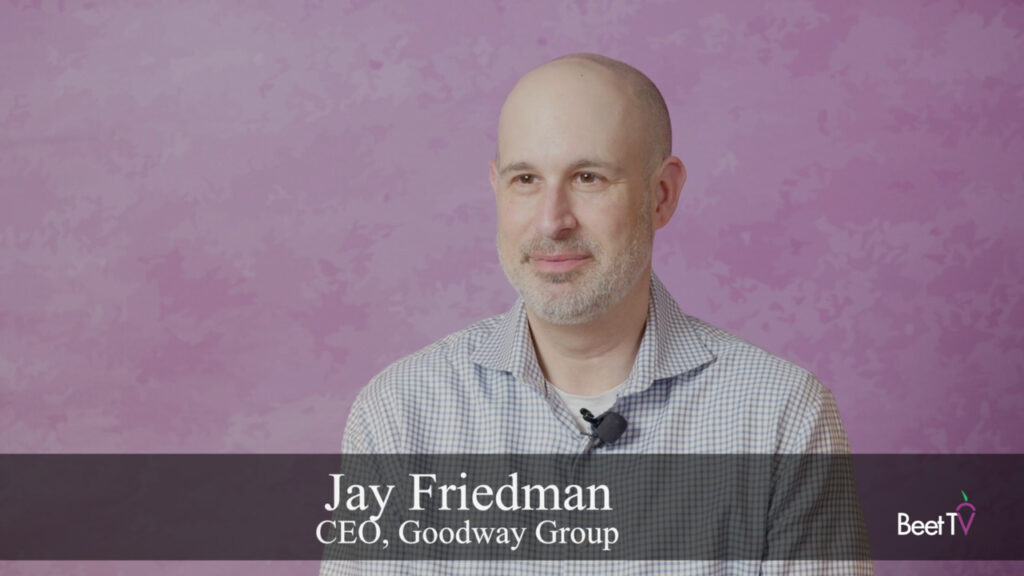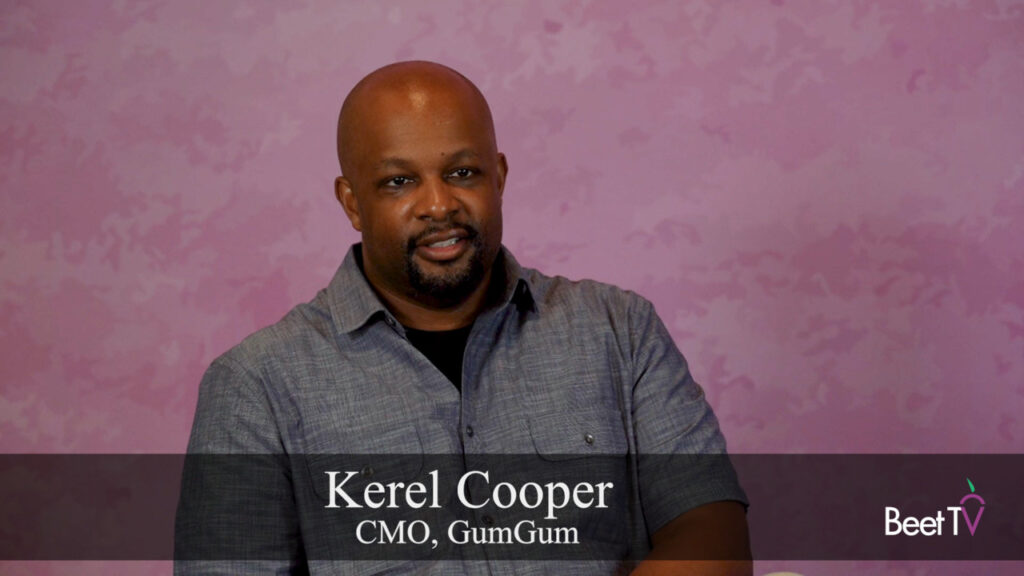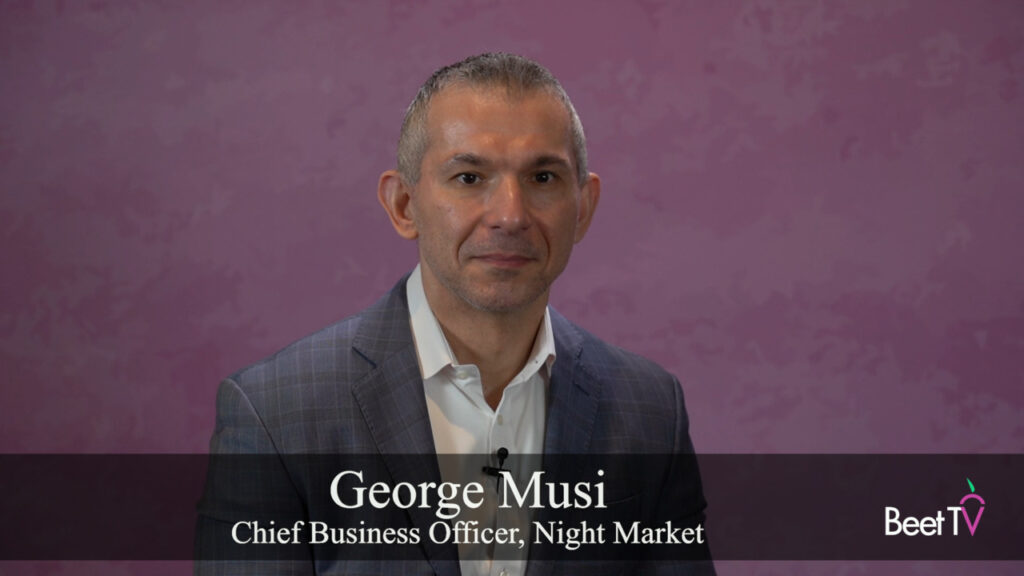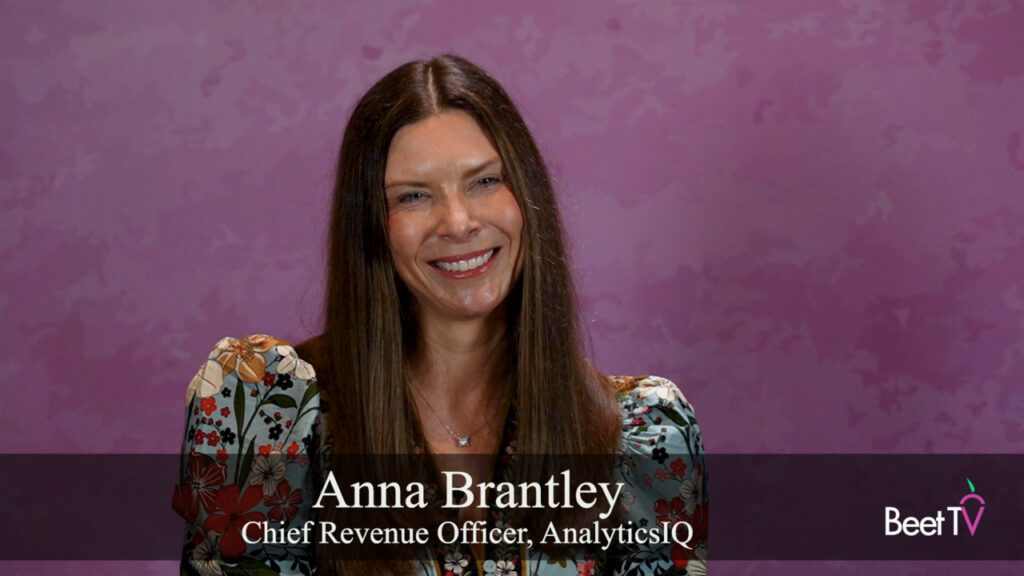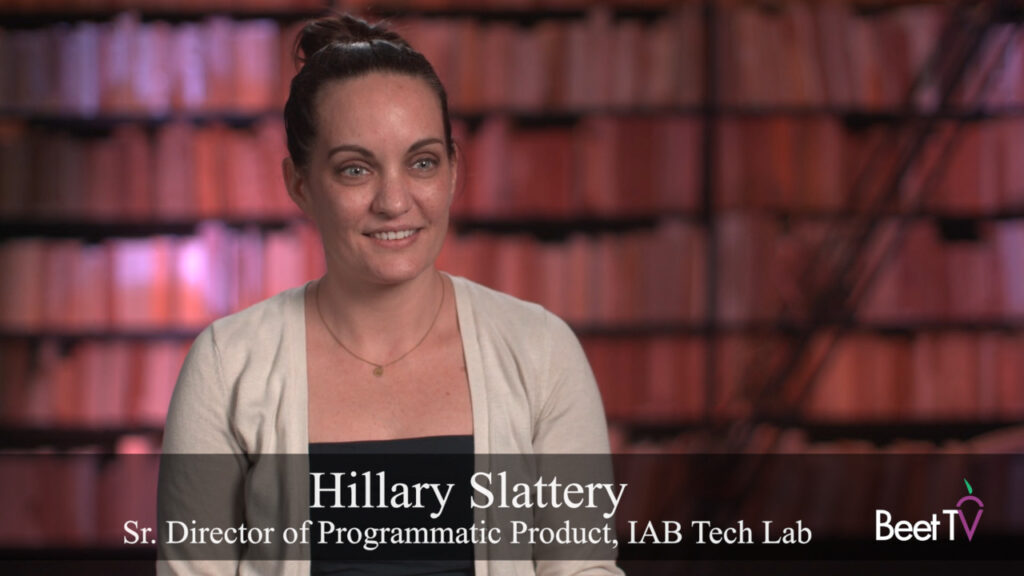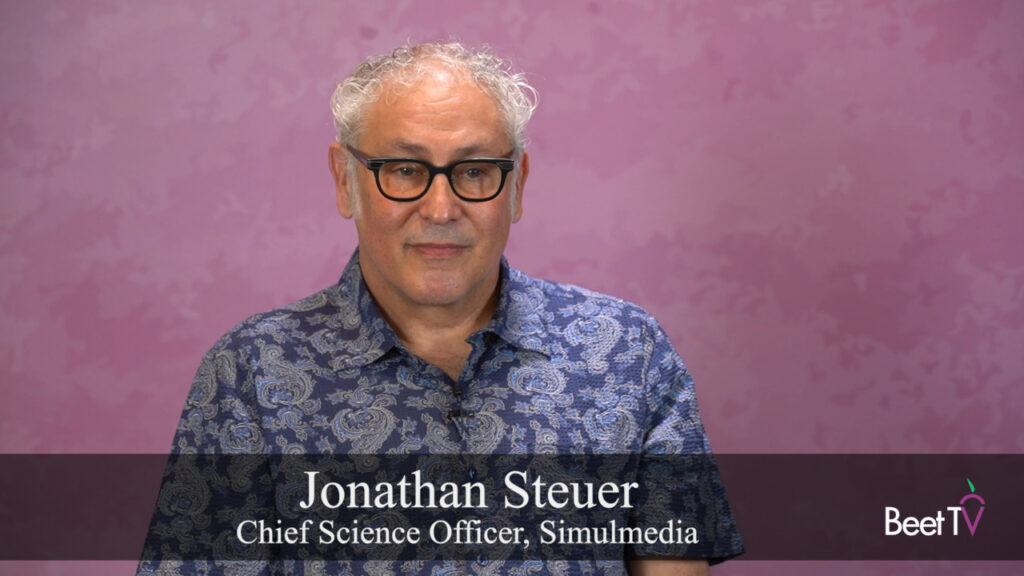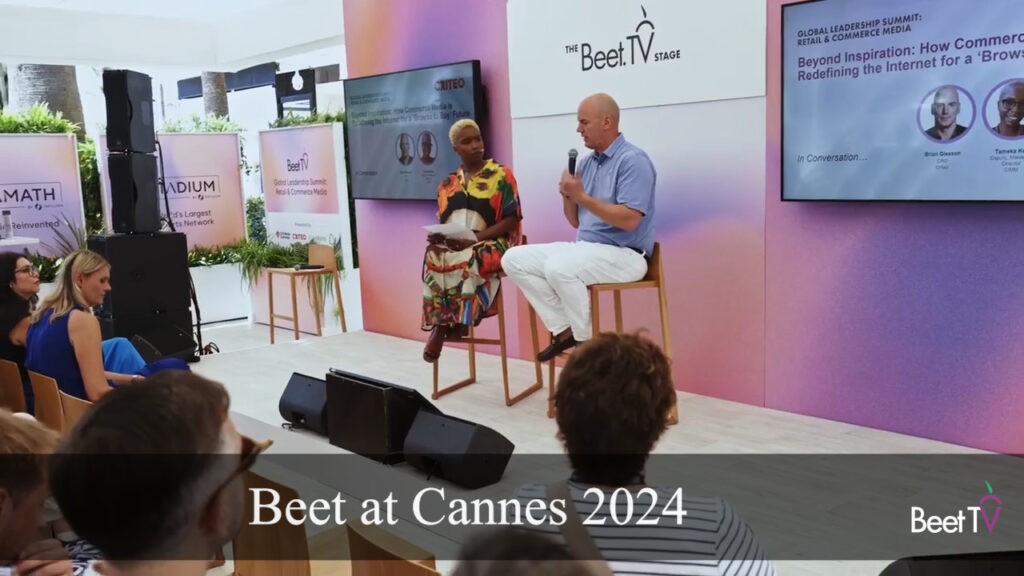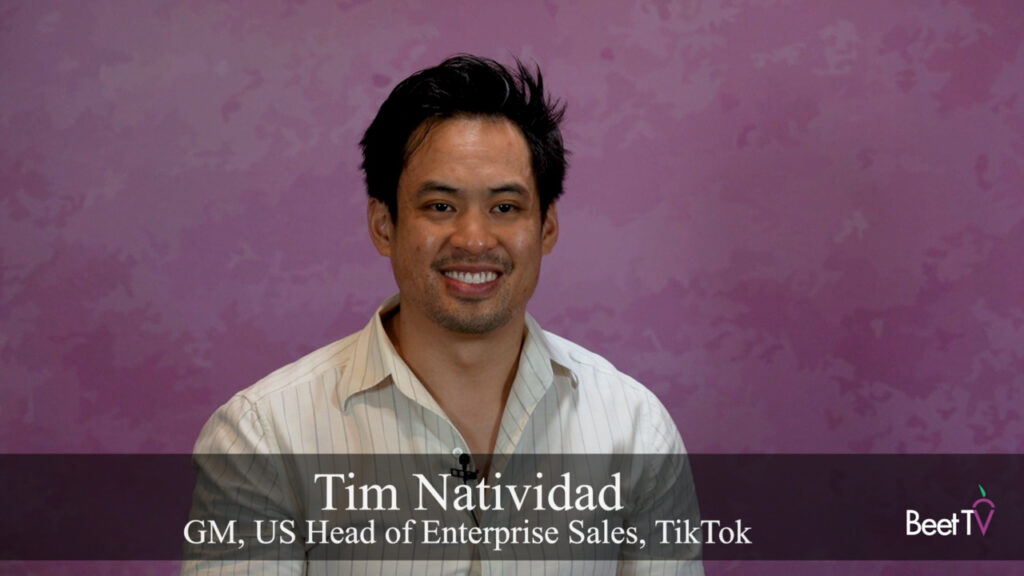Former Starcom CEO Laura Desmond perceives a “full-scale crisis of confidence in marketing” not due to a lack of advertising accountability but to the complicated nature of brand building.
“We see it play out with the holding companies and how they’re doing and how they’re under pressure, and that impacts every other part of the ecosystem,” says Desmond, who is Founder & CEO of Eagle Vista Partners. “I fully believe we can get out of this crisis of confidence, but we can’t keep doing the same thing.”
Desmond was one of many advertising and media veterans who assembled at Meredith Corporation’s Luce Auditorium last week to participate in Beet Retreat in the City: Television Advances as Consumers Choose. In this interview with Beet contributor Ashley J. Swartz, Desmond discusses the need to “disrupt ourselves from a new place in marketing and communications and really begin with a new value exchange with people.”
Alluding to Philadelphia retailer John Wanamaker’s adage in the 1800’s that “Half the money I spend on advertising is wasted; the trouble is, I don’t know which half,” Desmond says measurement’s not the issue.
“That’s not true anymore. We have more accountability, more modeling, more smart measurement in what media and advertising is doing than ever before,” says Desmond.
What has changed is the rise of digital communications and the concurrent advent of so-called direct brands, which bypass traditional means of producing, promoting and distributing their wares.
“The problem is, with the advent of the digital marketing ecosystem, there’s so much fragmentation and people are building brands now. Brands and marketers and agencies aren’t building brands.”
Desmond cites the emergence of brands like Dollar Shave Club, which disrupted a marketplace long dominated by Gillette and Schick.
“Gillette never saw dollar shave club coming, yet they’ve completely upended the category,” she says.
While the television industry is often criticized for lacking change amid the rise of digital media, it’s still “the most perfect model that we’ve ever created over the last 75 years. It’s scale, it’s got reach, it’s got engagement.”
The real problem with television is the waste involved for advertisers trying to achieve effective reach when targeting desired consumer segments, according to Desmond. Therefore, the $100 billion TV marketplace “needs to be absolutely disrupted.”
She believes that innovations like data-informed addressable and connected TV will provide that disruption, but there’s work to be done before they can be fully leveraged.
“The supply side is somewhat ready to sell this way, the demand side is not as completely ready because mostly they don’t know how to plan and buy for it,” Desmond explains. “Because they need to have more software and automation to help them make sense of all the complexity. You can’t do addressable advertising on a spreadsheet.”
Asked by Swartz, who is CEO of Furious Corp., for an update on her work life after leaving Starcom at the end of 2016, Desmond says she is an operating partner with Rhode Island-based Providence Equity Partners. She’s involved in two deals: one for adtech firm DoubleVerify and one for a sports marketing firm in Europe.
“The other part of my week is I’m working with a select group of CEO’s and startup companies, helping them on branding, on purpose, on go-to-market strategy,” Desmond says. “I’ve been working really heavily with LiveRamp, with Anaplan and with a company in Chicago called Uptake Technologies.”
This video was produced at the Beet Retreat in City & Town Hall on June 6, 2018 in New York City. The event and video series are presented by LiveRamp, TiVo, true[X] and 605. For more videos from the series, please visit this page.






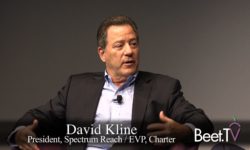




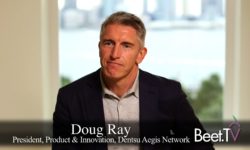


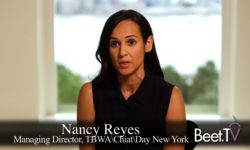

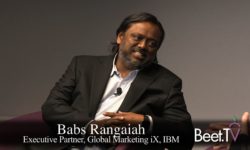
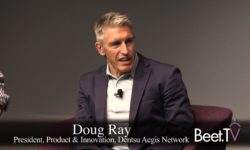


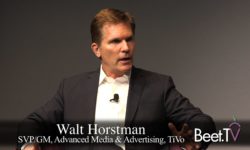
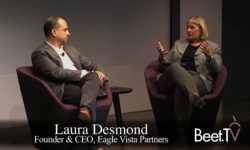
![true[X]’s Midha Revels In Vogue For Lower Ad Load](https://www.beet.tv/wp-content/uploads/2018/06/thumbnail-55-250x150.jpg)
